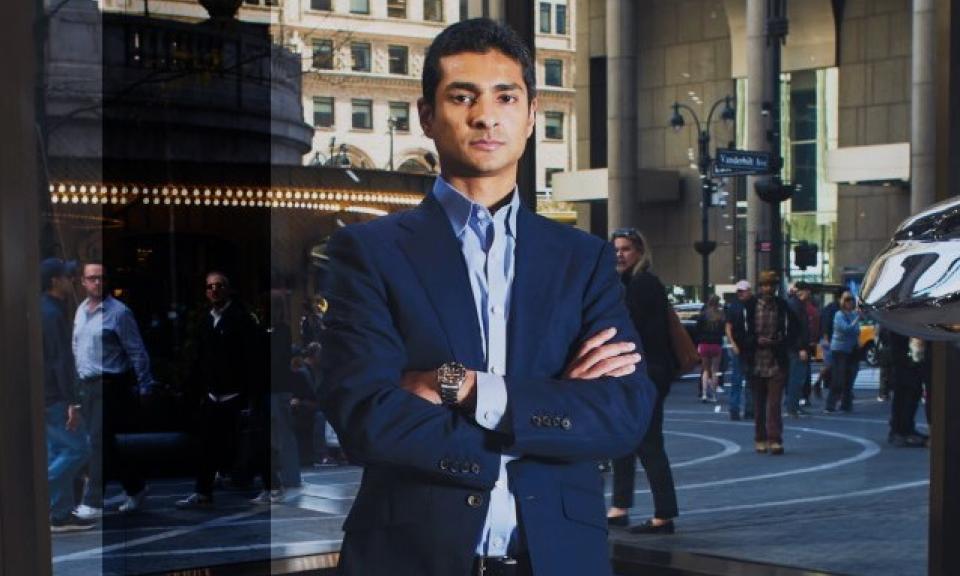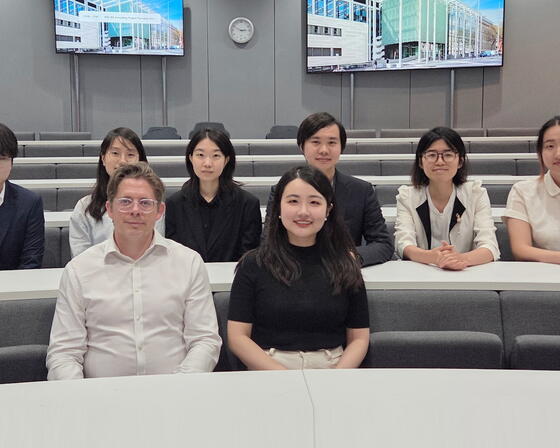Alumni Blog: Ravi Varghese, Head of Sustainable Investing at a global asset management firm

If investors want businesses to clean up their act, they need a seat at the table. That’s according to Ravi Varghese, Head of Sustainable Investing at global asset management firm Epoch Investment Partners.
After seven years as an investment analyst, Ravi Varghese followed his interest in climate change by taking a role with Ceres, a sustainability organisation based in Boston. But he missed the cut and thrust of investment and went on to complete an MSc in Climate Change, Management & Finance at Imperial Business School in 2018.
“Imperial’s reputation at the intersection of science and technology and management really stood out, and its network has been incredibly helpful.”
Promoted at Epoch in New York after joining as an analyst in 2019, he is now in charge of environmental, social and governance (ESG) and, with his team, helps assess the implications of ESG issues for the firm’s portfolio of around 500 listed companies.
Dealing in controversy
Grappling with ethics is part of the job. Nothing, in his view, is off limits when it comes to applying the tools of ESG investing – from fossil fuels through to defence and Big Tech. “We don’t exclude any sectors; controversial industries are more likely to benefit from a thoughtful ESG approach.”
Investors had grown pessimistic about the prospects of hydrocarbons, he says, but when energy prices soared, many ESG investors found themselves without exposure to these pivotal companies.
“Some sectors have fallen out of favour, but we’ve always said these companies are central to the global economy and energy security and will continue to be so for the next 30 years,” he explains. “Many are making the transition to lower carbon energy, and we want to take part in that.”
It’s perfectly reasonable that the tech giants should be subject to scrutiny
Divesting from fossil fuels doesn’t reduce emissions, it simply shifts the ownership, “and if that ownership becomes opaque, it could make things worse.”
Big Tech, with its vast influence over societies and economies, is fraught with pitfalls for ESG investors, but can’t be ignored. “It’s perfectly reasonable that the tech giants should be subject to scrutiny,” he says. “As investors, we continue to think how we can be effective partners while challenging practices that could ultimately draw a backlash from society or regulators.”
If a client’s reputation is at stake, a company fails to reform or displays weak governance, then it may be time to depart. “One of the interesting things about ESG is that it merges the pragmatic reality of the corporate world with more complex issues around ethics and reputation.”
The growth of ESG
Even in the last three years, ESG has developed apace, says Ravi. “Not every asset manager had an ESG team then, which is very different today. ESG had to overcome a lot of scepticism… It means many things to many people, so definitions are important.”
In his role, Ravi often engages directly with companies to dive deeper into the detail around ESG performance, and he works closely with investment analysts in his company. Investor stewardship is another important pillar in ESG – increasingly, for instance, shareholders are asking businesses for plans to report and cut emissions and meet environmental and social targets. His team is also responsible for explaining the firm’s ESG philosophy to its clients.
Controversial industries are more likely to benefit from a thoughtful ESG approach
While formal qualifications aren’t a prerequisite for entering the ESG field, he’s grateful for the solid grounding delivered by his time at Imperial Business School.
“It gave me a foundation in climate science and the political, economic and technological tools for mitigating emissions. I think it really accelerated my ability to pursue this career. ESG is now being applied to so many different industries and asset classes, and it promises to be a really interesting journey.”
Ravi Varghese in brief
- Completed the MSc in Climate Change, Management & Finance at Imperial Business School
- Head of Sustainable Investing at global asset management firm
- Worked as a senior associate at a non-profit organisation advocating for sustainability
- Completed his undergraduate degree at Yale University



